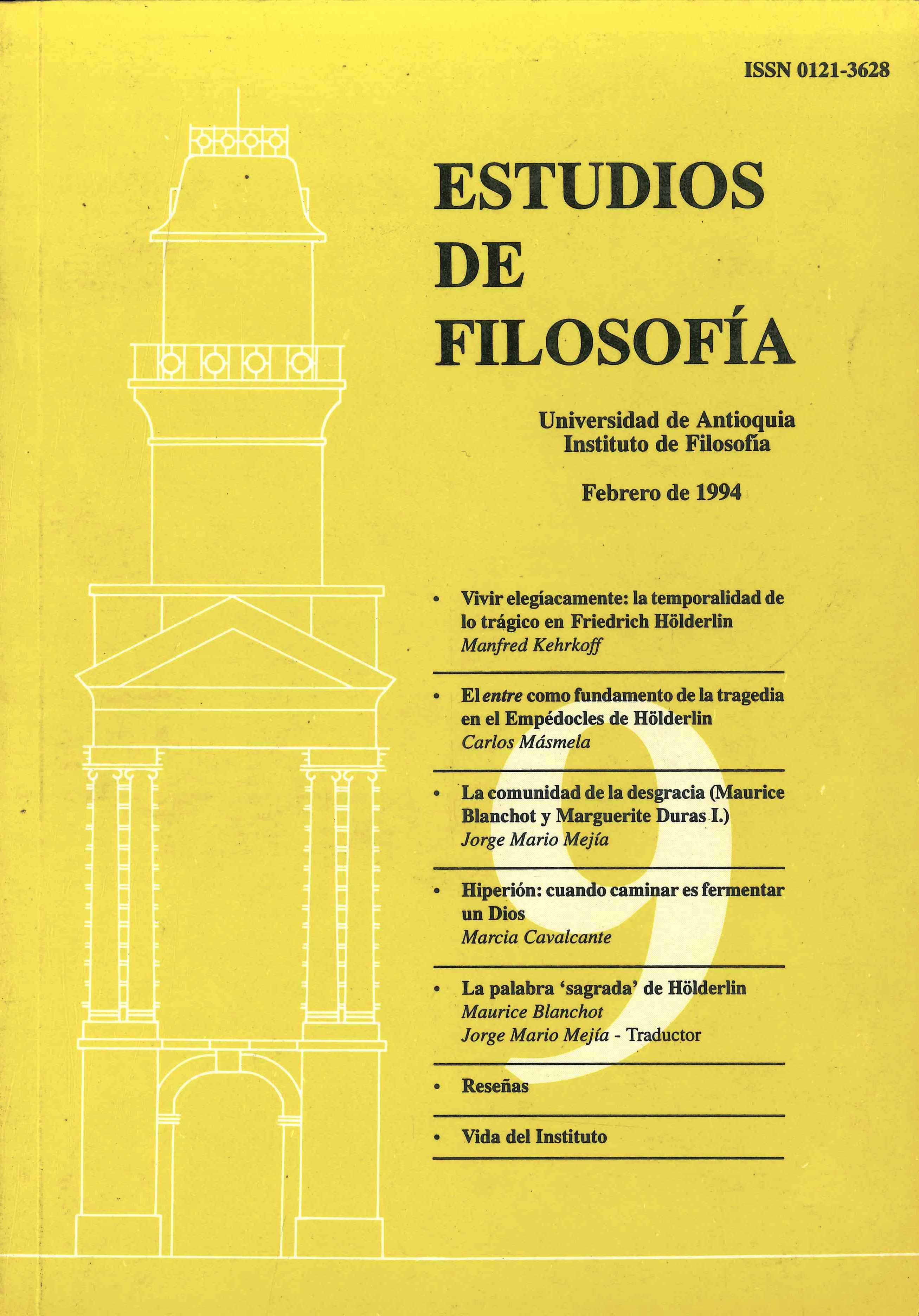The community of disgrace (Maurice Blanchot and Marguerite Duras I.)
DOI:
https://doi.org/10.17533/udea.ef.339066Keywords:
Maurice Blanchot, Marguerite Duras, disgrace, painAbstract
In La communauté inavouable (1983), Blanchot expressly takes up the subject of thinking about the community of those who have no community, a matter he had already considered in Le livre á venir (1959) and in L'entretien infini (1969). The present lecture refers to those antecedents. In the first part, taking up Duras' narrative Le square (1956) and Blanchot's essay meditating on it, The pain of dialogue, the lecture points to the "ethical" relationship between conversation and disgrace. The second part gives a characterization of the time when the strange occurrence of conversation takes place and, equally, of those experiences permitting thought not to precede disgrace, though not abandoning itself to the absence of thought, either. The third part makes a reading of the pieces called Indestructible, The Relation of the Third Genre, etc., in order to establish the traits of the different "levels" of disgrace relative to the possibility or impossibility of conversation. The fourth and last part returns to the first one, with the purpose of precising the community of those who have nothing in common except their separation -different in each of them- from the world: the community of disgrace.
Downloads
Downloads
Published
How to Cite
Issue
Section
Categories
License
Copyright (c) 1994 Jorge Mario Mejía Toro

This work is licensed under a Creative Commons Attribution-NonCommercial-ShareAlike 4.0 International License.
Authors who publish with this journal agree to the following terms:
1. The Author retains copyright in the Work, where the term "Work" shall include all digital objects that may result in subsequent electronic publication or distribution.
2. Upon acceptance of the Work, the author shall grant to the Publisher the right of first publication of the Work.
3. The Author shall grant to the Publisher a nonexclusive perpetual right and license to publish, archive, and make accessible the Work in whole or in part in all forms of media now or hereafter known under a Creative Commons Attribution-NoCommercia-ShareAlike (CC BY-NC-SA 4.0), or its equivalent, which, for the avoidance of doubt, allows others to copy, distribute, and transmit the Work under the following conditions: (a) Attribution: Other users must attribute the Work in the manner specified by the author as indicated on the journal Web site;(b) Noncommercial: Other users (including Publisher) may not use this Work for commercial purposes;
4. The Author is able to enter into separate, additional contractual arrangements for the nonexclusive distribution of the journal's published version of the Work (e.g., post it to an institutional repository or publish it in a book), as long as there is provided in the document an acknowledgement of its initial publication in this journal;
5. Authors are permitted, and Estudios de Filosofía promotes, to post online the preprint manuscript of the Work in institutional repositories or on their Websites prior to and during the submission process, as it can lead to productive exchanges, as well as earlier and greater citation of published work (see The Effect of Open Access). Any such posting made before acceptance and publication of the Work is expected be updated upon publication to include a reference to the Estudios de Filosofía's assigned URL to the Article and its final published version in Estudios de Filosofía.















